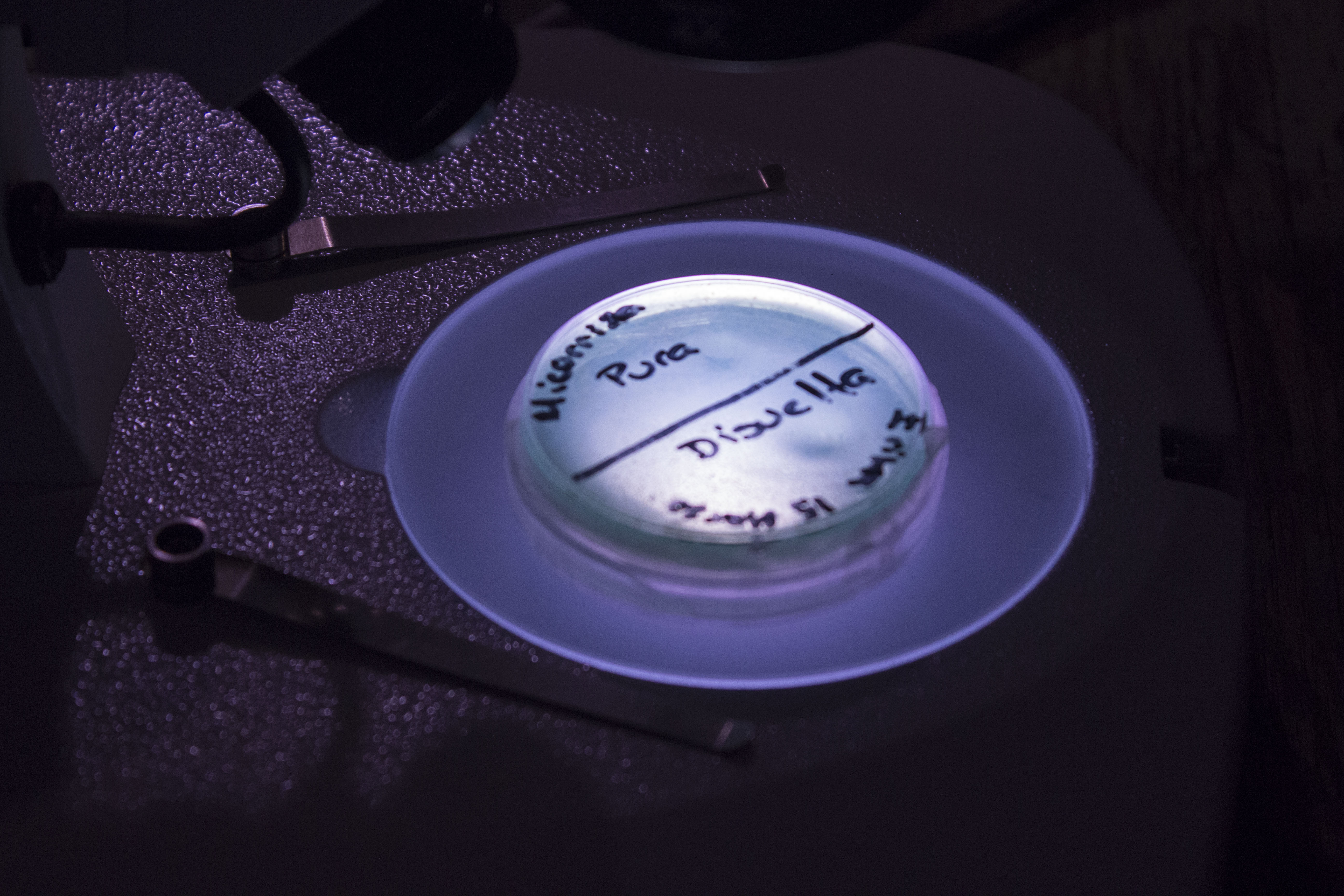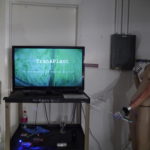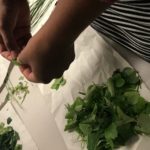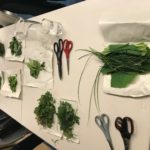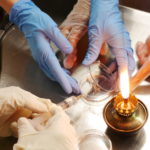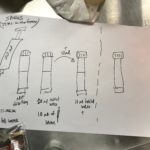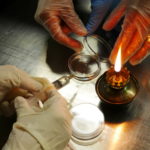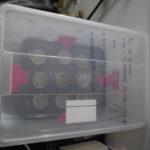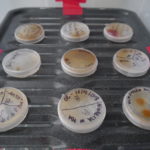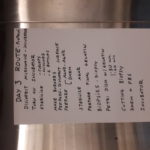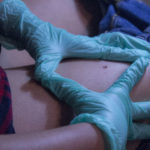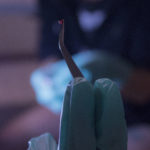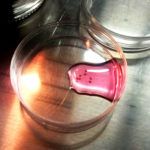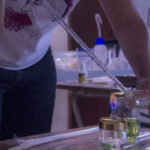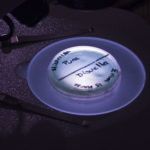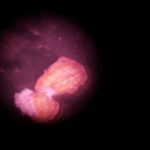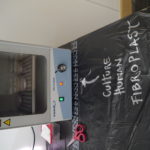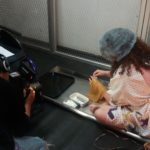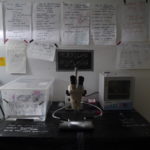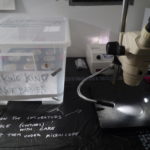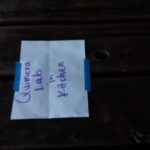‘I want to use the beady little eyes of a laboratory mouse to stare back at my fellow mammals, my hominid kin, as they incubate themselves and their human and non-human offspring in a technoscientific culture medium’.
Donna Harraway, Modest_Witness@ Second_Millenium. Femalemale©_Meets_Oncomouse®: Feminism and technoscience.
Workshop Trans*Plant, Ma maladie est une création artistique from Bandits-Mages on Vimeo.
Workshop content
This workshop combines practical and technical aspects of laboratory techniques, an approximation to the clinic through the study of a specific medical protocol, theoretical references, and ways in which the arts and the sciences can interact to generate new perspectives and practices about biohacking and biomedical issues. The workshop is structured in three main blocks.
1. DIY/ DIWO lab
In this block we will present the tools, security and legal norms of the laboratory, and introduce the participants to laboratory techniques and to scientific research papers search.
2. Working with a specific case: HPV (Human Papilloma Virus) / PDT (PhotoDynamic Therapy)
The transdiciplinary work, “Trans*Plant: My disease is an artistic creation”, is a combination of biomedical research, bio-hacking and artistic practices taking back the body defined as diseased.
Following the laboratory introduction, we will work with this specific case. We will present several scientific papers and their protocols and demonstrate how we decided to choose one of them to develop our research. We will then move into the practical aspects of this protocol, with an introduction to the work with cells, some concepts to work with light (wave width, frequency, potency and intensity), the production of a low-cost light source, and some ground chemical notions to be able to work with the photosensitizing agent we chose. By following the steps of developing the protocol, this practical case study turns into a tip through the biomedical mirror: becoming Oncomouse®. Life Model concept, obtaining cells, design and patent of modified animals to host human cancer cells, the possibility of ordering your own model with the disease of your choice…Be ready, curvy road ahead.
3- Self-experimentation and performativity as research methods
In this final block we will start a collective reflection on how to establish a science-arts transdisciplinar research. Following a historical review of the split of these two disciplines, we will look into the effect of this separation. We will study the performativity of life in laboratories, and the notion of objectivity and truth that is at play. We will trace how models of visual representation have modeled biology and how they have become systems of verification (Foucault). We will ask which translation tools can we use when discussing concepts such as body, life, truth, representation, disease, sexuality, individual, expert..
Pictures of the workshop @ University of California Davis (UC – February 2018), CyborgGrrrrls Festival, Mexico City (MX – March 2018) and Bourges, co-production Bandits-Mages / Emmetrop (FR – June 2018)
Project Summary Trans*Plant: My disease is an artistic creation
This project departs from a medical self-experimentation process on condylomata acuminate, an STD produced by HPV (Human Papiloma Virus) that one member of Quimera Rosa lives with. This work consists in the development of the necessary protocols and tools to implement a DIY-DIWO photodynamic Therapy (PDT) treatment for genital warts. PDT is a low invasive technique with great results on localized cancer and skin diseases that is based in the activation of a photosensitive molecule through a light source to generate apoptosis (cell death). However, the access of this innovative technique is still limited (only implemented in private clinics and a few hospitals in certain countries).
Thus, the main goal of this project is to open the black box, in hacker language, or to open the pill, as AIDS activist used to say. The aim is to replicate and make knowledge accessible. On another side, from an artistic approach and through the performative dimension of self-experimentation, we want to locally build a critical mass of users-experts (understanding users as experts) and be able to establish an open and critical dialogue with the health institution.
Another aim for this project is to create knowledge that breaks the taboos in relation to the ‘diseased’ body. By considering that a body is always a diseased body and disease as inherent in life, we can use disease as a creative tool to deconstruct the normalizing processes produced through the notion of a healthy body.
*https://www.gridspinoza.net/en/projects/transplant-my-disease-artistic-creation *http://quimerarosa.net/wiki/index.php/TransPlant_Mi_enfermedad_es_una_creaci%C3%B3n_art%C3%ADstica

